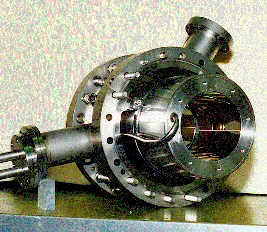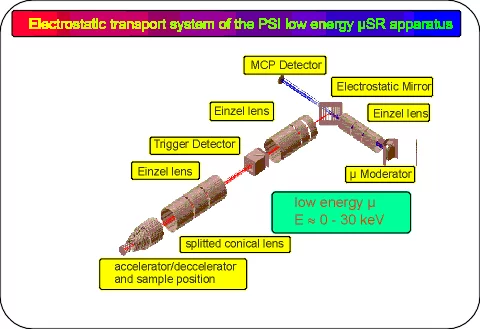After extracting the low-energy muons from the moderator region they are separated from the fast muons by a 90 degree deflection. After passing the mirror they are focused to the sample region. This is done by an electrostatic transport system consisting of the acceleration unit with the moderator, an electrostatic mirror, three 'Einzel-lenses', and a conical shaped lens in front of the sample . The picture below shows an 'Einzel-lens' used in our experiment. The first and the third lens are cooled with liquid nitrogen in order to reduce exposure of thermal radiation to the moderator and the sample (the sample can be mounted on a cryostat which is not shown here).
The first lens focuses the low-energy muons onto the electrostatic mirror which deflects them by 90 degree. The fast muons with energies above a few tens of keV are only slightly influenced by the mirror and are monitored by a MCP detector. The second lens creates an intermediate focus at the position of the trigger detector which gives the start signal for µSR measurements. The last 'Einzel-lens' focuses the low-energy muon beam to the sample region, where the conical shaped lens defines the final focus to reduce the beam spot size to 10 mm FWHM. The sample is mounted electrically insulated and can be set to a high voltage of up to +-12 kV in order to accelerate or decelerate the low-energy muon beam before implantation.

